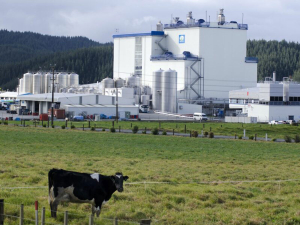Trump’s tariffs put $1.3B NZ exports to US at risk, DCANZ warns
Donald Trump's uncompromising tariff policy is set to put New Zealand dairy exports to the US under huge pressure.
 It is estimated that Canada’s disregard for the CPTPP rules denied New Zealand dairy exporters over $120 million in trade opportunities.
It is estimated that Canada’s disregard for the CPTPP rules denied New Zealand dairy exporters over $120 million in trade opportunities.
New Zealand dairy processors are welcoming the Government’s commitment to continuing to push for Canada to honour its trade commitments.
This follows Canada’s confirmation of its approach to administering its Comprehensive and Progressive Agreement for Trans-Pacific Partnership (CPTPP) dairy import quotas that will again place most of the quota access in the hands of domestic processors, who have limited interest in importing from CPTPP countries.
"DCANZ agrees with the New Zealand Government assessment that Canada has cynically moved to replicate the outcome that the dispute panel ruled against," says DCANZ executive director Kimberly Crewther.
"The costs of Canada’s flouting trade rules are mounting for the New Zealand dairy industry,’ she says.
It is estimated that Canada’s disregard for the CPTPP rules denied New Zealand dairy exporters over $120 million in trade opportunities in the first three years of the CPTPP agreement, and these costs continue to grow.
Earlier this week, Trade Minister Todd McClay says New Zealand has no intention of backing down in a trade dispute with Canada over dairy products.
New Zealand initiated the dispute because Canada was not complying with Comprehensive and Progressive Agreement for Trans-Pacific Partnership (CPTPP) rules, blocking dairy exporters’ access to its market.
A CPTPP arbitration panel ruled decisively in New Zealand’s favour. Canada had until 1 May to change how it administered its tariff rate quotas - to stop giving its own domestic industry priority access, and to allow exporters to benefit fully from the market access negotiated in good faith between Canada and New Zealand.
McClay says he has asked for urgent legal advice in respect of our ‘next move’ and says the Canadian government still has time to honour its obligations to New Zealand both in the spirit and substance of the agreement.
NZ dairy exporters are also concerned that Canada is disregarding its WTO trade commitments.
Crewther points out that not only is Canada restricting access into its market, but there’s also a rising tide of subsidised Canadian dairy exports in other markets, contrary to previous WTO legal rulings.
“This is putting a billion dollars of New Zealand dairy protein exports to global markets at risk,” she says.
Global trade has been thrown into another bout of uncertainty following the overnight ruling by US Supreme Court, striking down President Donald Trump's decision to impose additional tariffs on trading partners.
Controls on the movement of fruit and vegetables in the Auckland suburb of Mt Roskill have been lifted.
Fonterra farmer shareholders and unit holders are in line for another payment in April.
Farmers are being encouraged to take a closer look at the refrigerants running inside their on-farm systems, as international and domestic pressure continues to build on high global warming potential (GWP) 400-series refrigerants.
As expected, Fonterra has lifted its 2025-26 forecast farmgate milk price mid-point to $9.50/kgMS.
Bovonic says a return on investment study has found its automated mastitis detection technology, QuadSense, is delivering financial, labour, and animal-health benefits on New Zealand dairy farms worth an estimated $29,547 per season.

OPINION: Here w go: the election date is set for November 7 and the politicians are out of the gate…
OPINION: ECan data was released a few days ago showing Canterbury farmers have made “giant strides on environmental performance”.